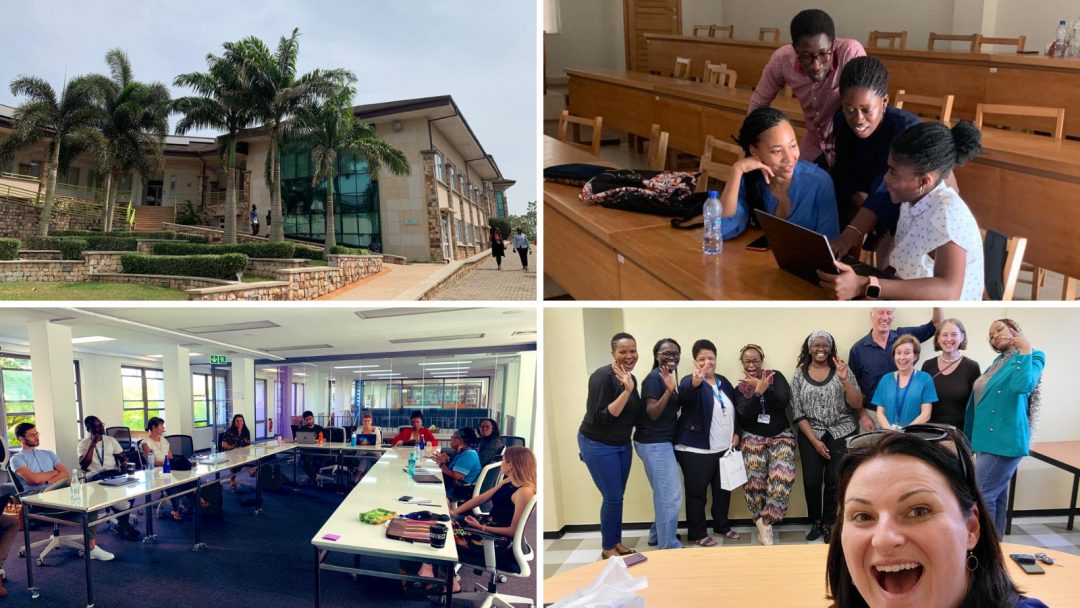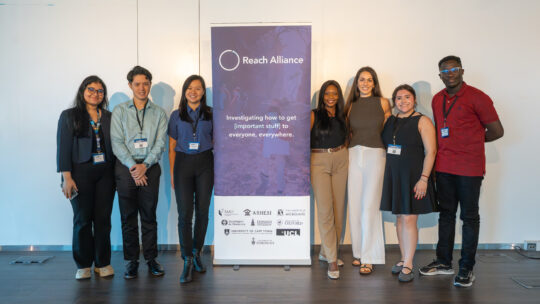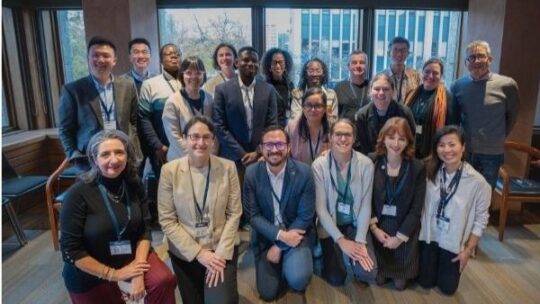Blogs: Latest Blogs
The Reach Alliance’s Africa Based Institutions

The Reach Alliance expanded its academic consortium to include Africa based institutions in South Africa (University of Cape Town) and Ghana (Ashesi University), both centres of academic excellence with a strong commitment to the United Nations’ Sustainable Development Agenda. This expansion broadens the scope and depth of Reach research, strengthening our global network of partners focused on delivering development interventions to the last mile.
Reach’s commitment to advancing a culture of leadership that is shared, transparent, and inclusive, is reflected in the growing diversity of the Reach community.
Last month, Marin MacLeod, Executive Director at the Reach Alliance visited our new partners at Ashesi University and the University of Cape Town, where she met Reach’s newest student researchers and mentors from across disciplines such as Health Sciences, Public Health, and Business Administration.
“After two years of virtual collaboration, the trip was a welcome opportunity to learn from our partners about their vision for student leadership, practices for knowledge co-creation and translation, and commitment to research impact” says MacLeod.
Associate Professor Tracey Naledi, University of Cape Town, comments “The University of Cape Town is pleased to be part of the Reach Alliance serving what has been described by Sokol and Fischer (2016) as communities that are “hardly reached”.
To date, Reach has focused on projects around the world reaching what we describe as ‘hard to reach’ communities, those living in extreme poverty, the geographically remote, administratively invisible and marginalized. Conversations with our global university partners are supporting Reach to rethink the language we use.
“I really like the term “hardly reached” as it places the emphasis on the need for service providers and the public services to reach people rather than the potentially stigmatizing terms that imply blame to the communities such as “hard to reach” or ‘marginalized’ or ‘disadvantaged’ ” says Professor Naledi.
In line with the University of Toronto’s new International Strategic Plan, the Reach Alliance is committed to being a prominent hub of inclusive knowledge production, creativity and innovation. This includes continuously incorporating knowledge and expertise from our partners at the University of Cape Town and Ashesi University as we grow, learn and apply an equity lens to all facets of the Reach initiative.
“Ashesi embraces different yet holistic ways of thinking. This mindset has been purposefully woven into the Reach project our students are working on, which has been intentional about bringing together students from different academic backgrounds to work on the No Bed Syndrome problem” says Professor Disraeli Asante-Darko of Ashesi University’s Business Administration Department.
University of Toronto’s Penina Lam, Director International Relations (Africa) shares further insights on the University of Toronto’s dedication to co-creation and cross-institutional learning, especially across Africa.
“I am truly delighted by the latest expansion of the Reach Alliance to Africa with the core focus on reaching the “hardly reached” through youth-led research projects. This is building on one of Africa’s greatest assets – the youth talent. As we engage with partners across Africa, U of T continues to place much emphasis on youth engagement, inclusive excellence, respectful partnerships, and impact. The shared values are enabled by co-creation and a collaborative learning approach, that will bring much success to the Reach Alliance research teams in Africa and beyond,” says Lam.



